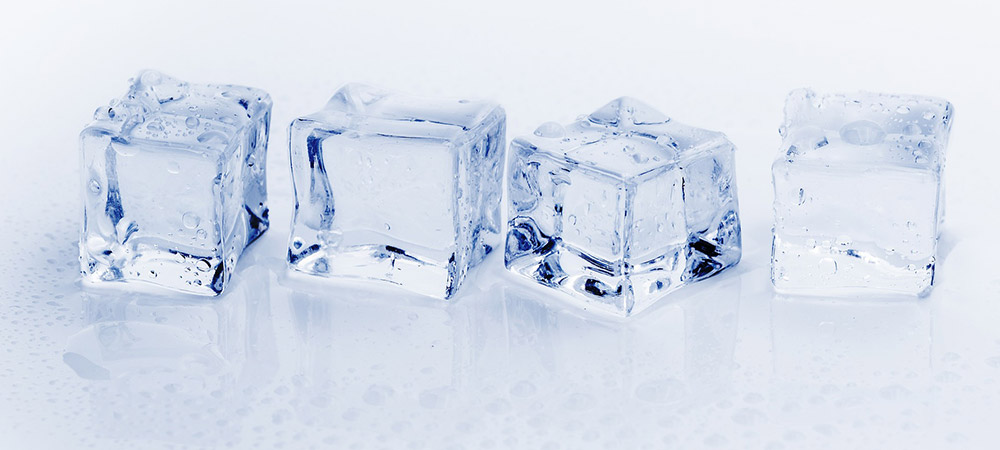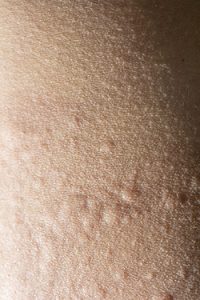Cold urticaria: What is it and how can it be treated?

Can you be allergic to the cold? Yes!
Cold urticaria (ur-tih-KAR-e-uh) is common in colder climates and is often called “cold hives.” It can develop soon after the skin is exposed to cold temperatures. These itchy, red hives or welts can have various symptoms, but often the hands and feet also become itchy and swollen. Additional cold urticaria signs and symptoms may include:
- A worsening of the reaction as the skin warms
- Swelling of hands when holding cold objects
- Swelling of lips and throat when consuming cold food or drink
Severe reactions are possible from cold urticaria because of massive mast cell degranulation and may include:
- A whole-body response (anaphylaxis), sometimes precipitated by swimming, which can cause low blood pressure, fainting, racing heart, swelling of limbs or torso, shock
- Swelling of the tongue and throat, which can make it difficult to breathe

If you experience a severe reaction to cold, you should get emergency treatment. Cold urticaria may go away on its own, but if you experience this condition frequently, you should see an allergist to have a cold test performed. During a cold test, a piece of ice is held against the skin for 2-3 minutes to see if this elicits raised red hives in that or the surrounding areas.
Most cases of cold urticaria happen in younger adults, age 18-25, but it can occur at any age. It is also more frequent in women.
Cold urticaria is the one kind of hives that responds very well to antihistamines, so as a first step, if you experience these hives, you can take an over-the-counter medication.
What causes cold urticaria?
“Most of the time, a cause for cold urticaria cannot be identified,” says Demetrios Theodoropoulos, MD, DSc, MSc, FACMG, FAAP, with Allergy Associates of La Crosse. “Most cases will improve over time. Sometimes cold urticaria is caused by an underlying allergy, respiratory infection (such as mycoplasma), or immune system problems, so it is important to see a doctor if you experience this type of hives. Sometimes cold urticaria can be associated with hemoglobinuria (red or tea-like urine). In this case, evaluation by a specialist is urgently needed.”
Cold urticaria is a systemic disorder and can be associated with fatigue, headache, dyspnea, and heart palpitations. Swelling of the pharynx or the tongue has also been known to occur in up to 5% of all patients.
Though cold urticaria can be frustrating, it is treatable when associated with underlying allergies, response to treatment is typically more favorable and the outcome is better.
What can you do?
When cold urticaria is associated with underlying allergies, please consult with an allergist near you. The information listed here is for general informational purposes only. Please note that Allergychoices cannot provide medical advice online.
